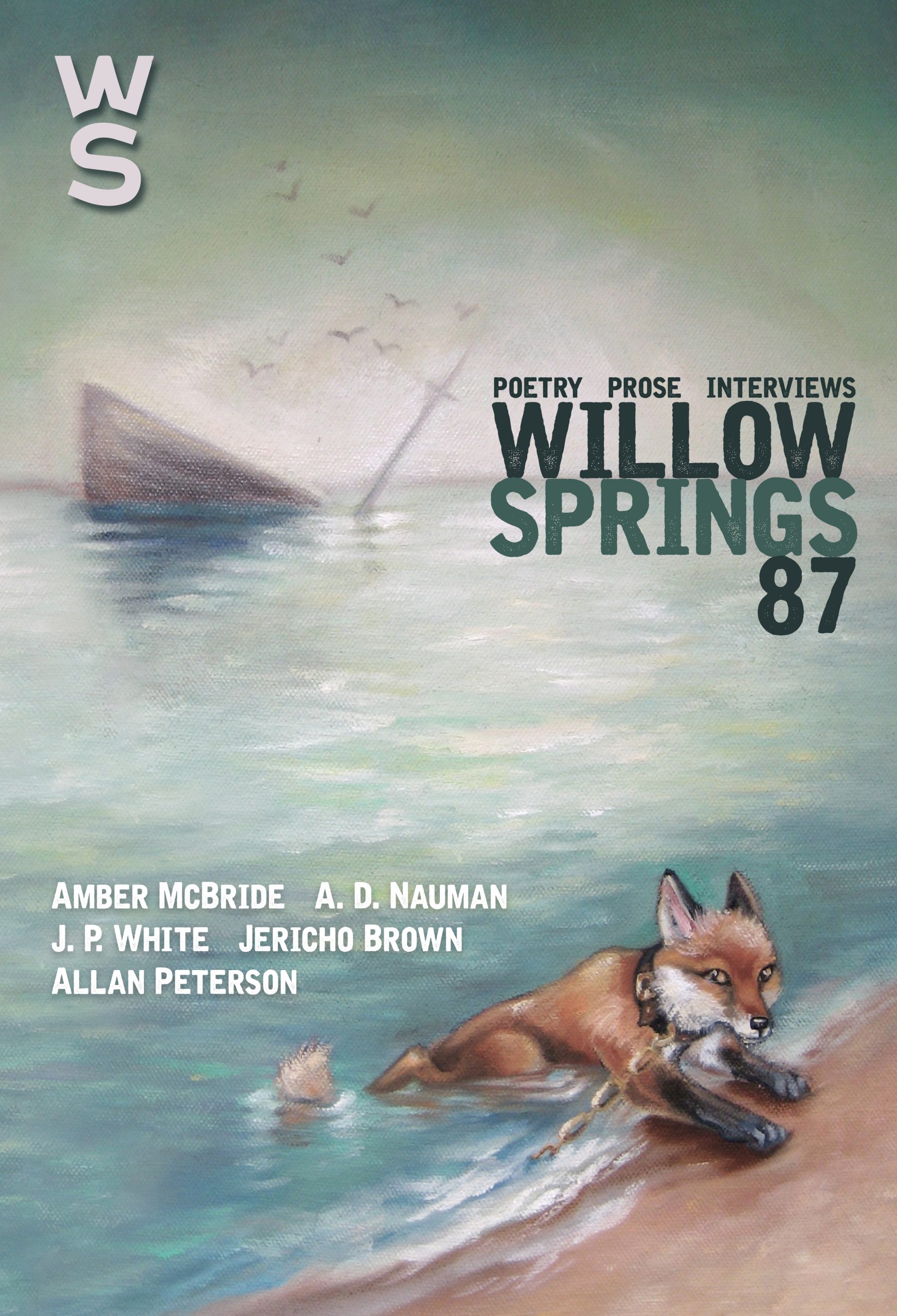
Found in Willow Springs 87
Back to Author Profile
Elegy for a Buckeye
I went all the way back to the beginning looking for a buckeye giant
On a quiet street in Ohio but it was gone and so were the spiny,
Gold brown husks containing the glossy nuts with circular eyes.
I always kept a buckeye in my pocket for any luck but bad
And rubbed its smooth finish hoping it would shiver me through
My father’s unhappiness with selling life insurance for Metropolitan.
On the way home from school, I would listen to the husks cracking,
The buckeyes falling for squirrels to lug off in their gaped mouths.
Food for winter? Isn’t that our first and last theme? If I had one
Of those buckeyes, I could look into its varnished mahogany burl
And see my father thumbing a buckeye like a miniature football,
Then launching it for a touchdown, my grandparents in Rye Beach,
Barefoot among the buckeyes for the beach and a last nude swim,
My Blue Angel cousin who crashed his jet must have tendered more
Than one in his hands and used it, like me, to steer by when he was
Grounded, and even the coalman conductor on a tight scream clock
Who I waved to every Friday from my bike might have glimpsed
This beauty before he entered the steel mills in Toledo and Chicago,
And thought for a moment he might lean against it some day
And read a book, everyone I knew in Ohio now seedless and distant
From the trees they planted to define them. My memory of all this
Only as old as September and young when compared to the Shawnee
Who named the tree after its nut flicking in a swale like a buck’s eye.
They are gone along with the Delaware and Miami and every other tribe
That ever lived in Ohio where this tree once lived and laid out
Its simple feast or do I have it wrong and the eye of the giant
I climbed and loved still sees what is happening and holds on?
Seabooted
I looked at my father in his last bed and saw him there seabooted
in the cockpit, holding in his eyes how a hull slips under a wave
without losing its push into weather. He didn’t hear my offerings
from a book he didn’t believe in, so much as the flapping of cloth,
the leaning into it, the splash kick of wake boiling off the transom.
Like any ocean indifferent to suffering, he contained countless wrecks.
On many other nights, I had gone down into his waters to survey
the damage, salvage the proof, imagine some blood payment
I might add to the patina, but on that night, I put aside my vanishing
into the ink of some ancient faded ledger between us and stayed
at the low, wet rail and we made the turn through the eye of the wind
and together found the morning. One of us heard the ocean over the dune.

